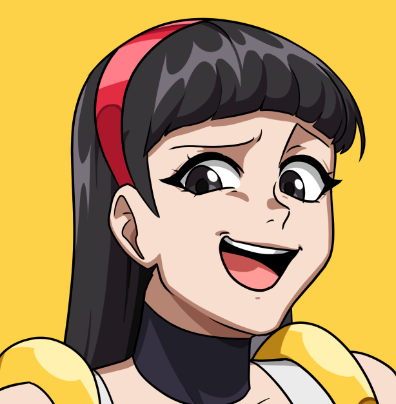Unlike Xenoblade 2, 3 is thematically incomplete without it's DLC.
The base game mainly focuses on Moebius and the desire to remain in the now. Showing how it's both a bad thing when taken to extremes, but also a natural and important emotion that's vital to protecting the ones you love. However, this statement is incomplete without examining the pros and cons of the other side. That being Ouroboros and the desire for change.
The base game briefly touches on the idea that the main character's desire for change can be a bad thing if taken too far, with moments such as Crys telling Noah that he needs to learn "to be content with ones lot". But it doesn't go much deeper than a brief mention.
Future Redeemed provides us with the opposite perspective that the base game was missing. Showing us how Na'el's desire for change is taken to the extreme, with her opting to abandon the world as a whole and trying to start anew. It's ironic then, that she would be the one to found house Doyle. Which the base game tries to depict as Moebius-like in their desire to protect what they have, rather than fight for more.
The base game uses house Doyle to try and make players rethink their preconceived notions they had about Moebius and what they want. It's the first glimpse we get into the idea that the desire for "now" isn't a purely evil thing. This idea culminates in the eclipse scene and continues all the way until the end of the game. Sure, Monica and the party might not understand it at first. And as players it's hard to argue against the party's perspective seeing as they're the lens through which we experience the story. But that's why Future Redeemed is so important. It provides that alternate lens that completes the picture that the game is trying to paint for us.

ignika98 /
npub1kf7…4qtl
2023-10-10 02:45:56
in reply to nevent1q…n4xq
Author Public Key
npub1kf7gtgyaulgvn3pjplpnz2ps0smxgc5wyh26lr8jnt5g6lxuam6sg74qtlPublished at
2023-10-10 02:45:56Event JSON
{
"id": "468edb5702cc39d5b882a6769f0d42569bc1cb1191e7378c8ae357db94032550",
"pubkey": "b27c85a09de7d0c9c4320fc33128307c3664628e25d5af8cf29ae88d7cdceef5",
"created_at": 1696898756,
"kind": 1,
"tags": [
[
"p",
"1caebf1ea86f143ede858d6374aeb5f866f9d01a9cdaf474b9299cb6b9f29c56",
"wss://relay.mostr.pub"
],
[
"e",
"9ee63ca62562c09f9450b51008b25c01dfbea7ceb17e3796a7ae046bad5235ae",
"wss://relay.mostr.pub",
"reply"
],
[
"proxy",
"https://fedi.treeoflifecomic.com/objects/592ff516-6ddf-4307-9e50-7c65aa4dcf64",
"activitypub"
]
],
"content": "Unlike Xenoblade 2, 3 is thematically incomplete without it's DLC.\n\nThe base game mainly focuses on Moebius and the desire to remain in the now. Showing how it's both a bad thing when taken to extremes, but also a natural and important emotion that's vital to protecting the ones you love. However, this statement is incomplete without examining the pros and cons of the other side. That being Ouroboros and the desire for change.\n\nThe base game briefly touches on the idea that the main character's desire for change can be a bad thing if taken too far, with moments such as Crys telling Noah that he needs to learn \"to be content with ones lot\". But it doesn't go much deeper than a brief mention. \n\nFuture Redeemed provides us with the opposite perspective that the base game was missing. Showing us how Na'el's desire for change is taken to the extreme, with her opting to abandon the world as a whole and trying to start anew. It's ironic then, that she would be the one to found house Doyle. Which the base game tries to depict as Moebius-like in their desire to protect what they have, rather than fight for more.\n\nThe base game uses house Doyle to try and make players rethink their preconceived notions they had about Moebius and what they want. It's the first glimpse we get into the idea that the desire for \"now\" isn't a purely evil thing. This idea culminates in the eclipse scene and continues all the way until the end of the game. Sure, Monica and the party might not understand it at first. And as players it's hard to argue against the party's perspective seeing as they're the lens through which we experience the story. But that's why Future Redeemed is so important. It provides that alternate lens that completes the picture that the game is trying to paint for us.",
"sig": "3aa5d48aa7b30d15f58fe85d169ee4cdad3af3b5329196091d4110178eb17982295d85aff16162cbcdc81ca82c4a198c23356a92866dcecef6e09d53d2e9f77a"
}